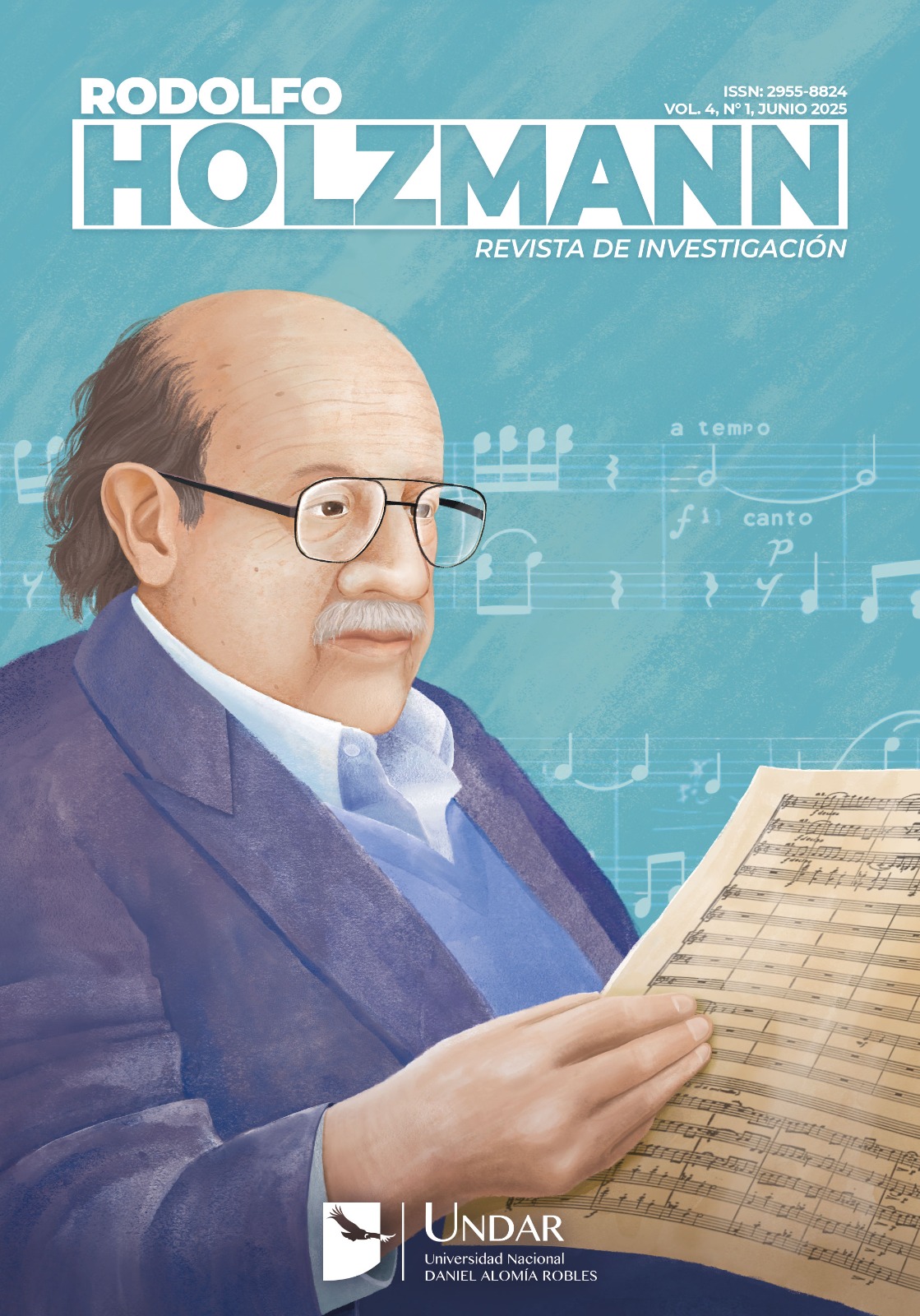Zenén Abdón Vega Martel, el Quivillano: vida, obra y legado musical en el contexto del huayno huanuqueño
DOI:
https://doi.org/10.65296/rrh.4.1.29Palabras clave:
Zenén Vega Martel "El Quivillano", huayno huanuqueño, música andina peruana, temple OcrosResumen
Este artículo tiene como objetivo analizar la vida, la obra y el legado musical de Zenén Abdón Vega Martel (1951-2021), conocido artísticamente como el Quivillano, figura representativa del huayno de la región de Huánuco, Perú. Mediante un enfoque de ensayo biográfico-musical contextualizado, se explora la trayectoria del artista desde sus orígenes en Quivilla y Tantamayo, pasando por su formación autodidacta influenciada por la figura paterna, hasta su consolidación profesional en Cerro de Pasco y Lima. Se abordan los principales aspectos de su carrera, tales como la creación del conjunto Los Huayruros de Llata, el surgimiento del nombre artístico con el cual fue conocido y la prolífica producción discográfica iniciada en 1974 bajo el sello El Virrey. También se examina su particular estilo interpretativo y compositivo, destacando el empleo de la guitarra con el temple conocido como Ocros y el análisis de temas emblemáticos, como Ocho libras mal gastadas, que alcanzó notable difusión nacional y generó hitos dentro de la carrera del cantautor, incluyendo disputas por derechos de autoría. Además, se discute el impacto alcanzado en la escena musical andina, sus colaboraciones con otros artistas y las particularidades de la recepción de su música. El ensayo concluye reafirmando la relevancia de Zenén Vega Martel como un «cantor del pueblo», cuyo legado perdura por ser parte fundamental del patrimonio sonoro y la identidad cultural del huayno huanuqueño, específicamente de la provincia de Huamalíes.
Descargas
Referencias
Carrasco, R. (2018). El arte de los temples. Escuela Nacional Superior de Folclore José María Arguedas. https://www.rolandocarrascosegovia.com/wp-content/uploads/2022/07/El-arte-de-los-temples-Articulo.pdf
Dina Paucar (Oficial) (2018, 14 de octubre). Entrevista al maestro Zenén Vega Martel EL QUIVILLANO [video]. Facebook. https://www.facebook.com/DinaPaucarOficial/videos/una-bonita-entrevista-al-maestro-zenen-vegamartel-el-quivillano-un-gran-maestro/929266483928956/
El Quivillano (2010, 11 de noviembre). El Quivillano - 8 Libras mal gastadas [video]. YouTube. https://www.youtube.com/watch?v=tlWW0HNyz1w&ab_channel=ElQuivillano
Tarikuy TV (2019, 19 de febrero). Entrevista a “El Quivillano” [video]. Facebook. https://www.facebook.com/TarikuyTV/videos/2187740718222012/
Publicado
Número
Sección
Licencia
Derechos de autor 2025 RODOLFO HOLZMANN

Esta obra está bajo una licencia internacional Creative Commons Atribución 4.0.
Los conceptos contenidos en los artículos científicos incluidos en esta edición, son de responsabilidad exclusiva de los autores y no reflejan necesariamente los criterios institucionales.
Los autores/as conservarán sus derechos de autor y garantizarán a la revista el derecho de primera publicación de su obra, el cuál estará simultáneamente sujeto a la licencia de Creative Commons Reconocimiento 4.0 Internacional. 






